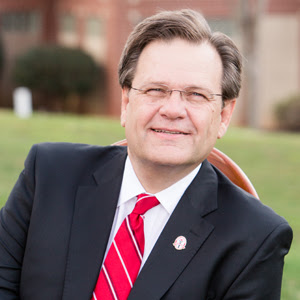Fundamentalism then and now
Are you a Fundamentalist?
I contend that every Christian should be a Fundamentalist. But before delving into why Christians should be fundamentalists, a question should be answered. Should we actually use the term “Fundamentalist” anymore? After all, the term has been dirtied since it was first coined by Curtis Lee Laws early in the twentieth century. Some people lately have said that the term Fundamentalist is too damaged to keep because secular media has at times lumped in Christians with Islamic Fundamentalists. This, even though each is the antithesis of the other. Also the media often labels any group it does not seem to appreciate as a fundamentalist group. Doesn't the media's misuse of
“Fundamentalist” ruin our label?
Another consideration. Some have pointed out that there have been fundamentalists who
have entered into open wickedness. These shamed ones had all the marks of
fundamentalists. By all appearances they were doing the work of God. Then they
committed sexual sin or engaged in some other other reproach to the name of Christ.
What an egregious thing! The result of each of these incidents has been that
fundamentalism as a whole was cast into a bad light. Another assault on the term
fundamentalism.
And then there is the sad fact that fundamentalists have been known to wrong brothers
within the movement. Subsequently, some wronged individuals, seeing no way to get
relief from their trouble, have left the ranks and have, I believe in confusion, joined with
those in compromise or even in apostasy. The injustice of the wrong was blamed on the
whole fundamentalist movement--not the individuals who were guilty. And so we see
another dirtying of the term fundamentalism.
Finally out there is the false and greatly exaggerated criticism of the movement by some
former fundamentalists. These folks say they have special position to say that
fundamentalism is corrupt, unloving, legalistic, and full of hypocrisy. Terms coined by
these unhappy folk include “Funnymentalism” “the f word” and “Fundys” Though
ungodliness, unthankfulness, and bitterness and even the rejection of Jesus Christ
altogether characterize many of their lives and prove that they are merely naysayers who
disdain truth and righteousness, their sharp and unwarranted criticisms still do damage to
the name fundamentalism.
So, should we drop the word “Fundamentalist” because the name has been sullied?
Let me partially answer that with another question. Should we drop the name Christian?
Surely there have been hits on that name.
All the points I have acknowledged here saying that the word “fundamentalism” should be
dropped could indeed be used to say that the word Christian should also be dropped! The
facts are that every good term--from “gospel” to “Protestant”, from “born again” to
“conservative”--has suffered damage from within and without.
Another point for keeping the term fundamentalist or fundamentalism is that the term is an
apt word to describe those who are committed to the fundamental truths of the Bible, in
contrast to those who are little concerned with every jot and tittle.
And then there is this point in support for keeping the term. Fundamentalism has a glorious
history that we should take pride in! Yes, any real but sad facts about the movement should
be noted and publicly repented of and forsaken. I believe that this has been done all
along. But if there is any standing accusation that has merit, it should be addressed honestly
and openly. That all being accomplished, there is so much about the fundamentalist
movement to get behind! From its inception, fundamentalism has been the label of
strong Christianity arising in stark contrast to false and feigned or, at the very best, insipid
Christianity with the purpose of doing battle against the world and the flesh and the devil
by applying the Word of God to all situations. That contention against wrong, instead of
sliding along with all that would mar the name of the LORD and His church, is still the
mark of a fundamentalist. Fundamentalists contend for the gospel and all that attends to
the gospel as carefully found in the Bible.
Those of us who are fundamentalists in spirit do well to retain the word. We address past
evils in our ranks. We correct evil in our present movement. But we go forth. We have a
worthy heritage to pass on to the next generation. We do well to continue in the work those
who have gone on before have done in pursuit of holiness for the glory of Jesus Christ.
Their honor is something. Their work is also something to hold in regard.
In conclusion, the word fundamentalism carries with it the testimony of a people redeemed
by the blood of the Lamb. It is made up of a people governed by the Word of God and
separated unto holiness of life to the praise of His glory. Paul's words characterize the
spirit of our movement. “That ye may be blameless and harmless, the sons of God
without rebuke, in the midst of a crooked and perverse nation, among whom ye shine as
lights in the world.” (Philippians 2:15) Peter's words define who fundamentalists are
striving to be: “But ye are a chosen generation, a royal priesthood, an holy nation, a
peculiar people; that ye should show forth the praises of Him who hath called you out of
darkness into His marvelous light;” (I Peter 2:9)
I believe all who name the name of Christ should indeed be Fundamentalists.
Are you a Fundamentalist?
Mark Lauger




Comments